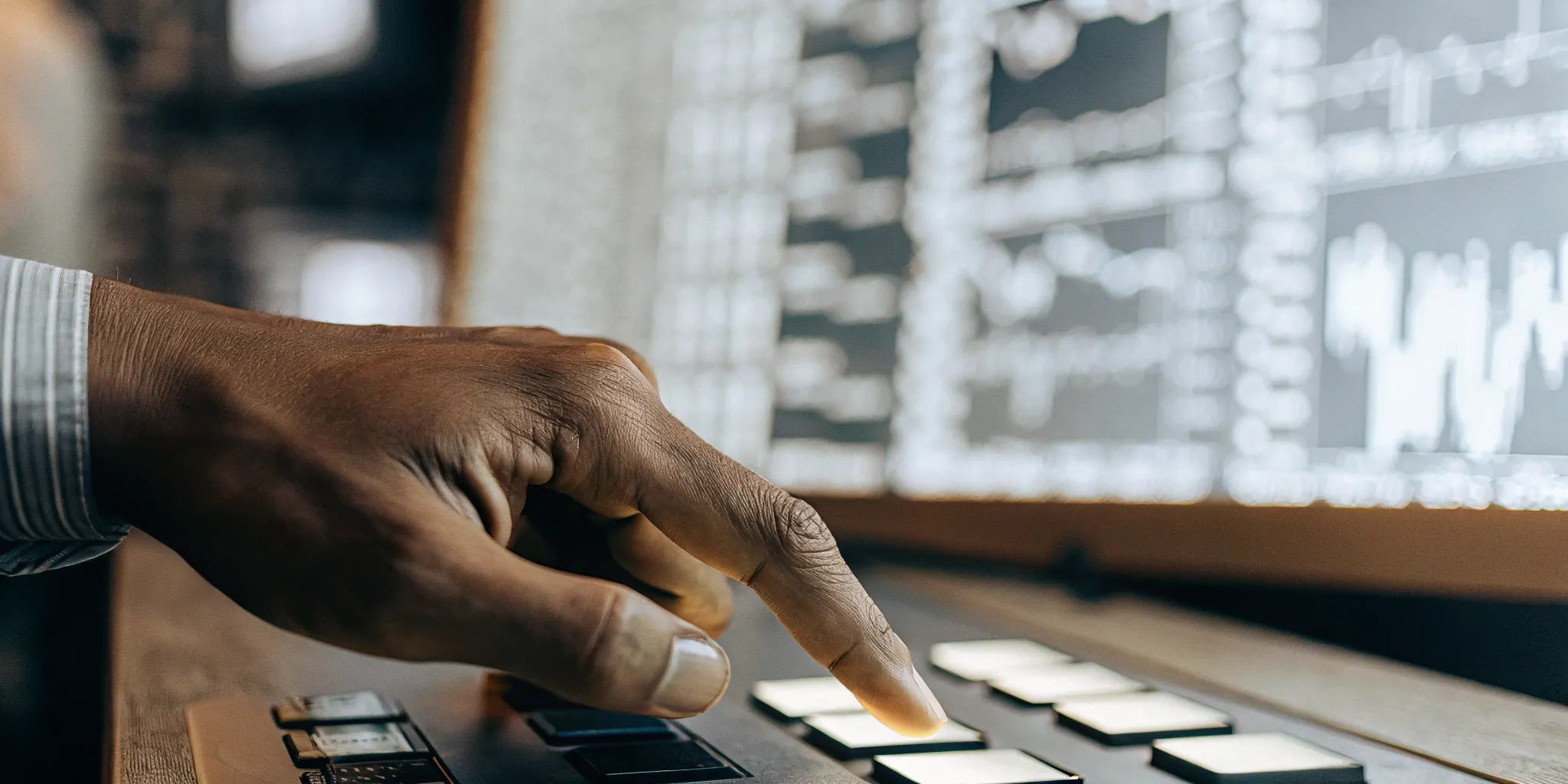Ready to expand your financial horizons? Global investment opportunities offer a world of possibilities beyond your domestic market. Whether you’re a seasoned investor or just starting, diversifying your portfolio with international assets can be a game-changer. From emerging markets brimming with growth potential to established economies offering stability, global investment opportunities provide a chance to pursue higher returns and build a more resilient financial future. In this comprehensive guide, we’ll explore the key asset classes, top global investment opportunities, and strategies for success in international markets. Let’s unlock the potential of global investing together.
Key Takeaways
- Diversify your portfolio with global investments: Look beyond your local market to access a wider range of assets, potentially increasing returns and reducing risk by spreading investments across different countries and sectors. Explore various asset classes, including stocks, bonds, real estate, and more specialized options like commodities and cryptocurrencies.
- Research and risk management are your allies: Before investing globally, carefully assess the economic and political climate of your target markets. Understand currency fluctuations, geopolitical influences, and local regulations. Select a reliable investment platform with strong risk management tools, transparent pricing, and a proven track record, considering options like FN Capital, Vanguard, and BlackRock.
- Stay ahead of the curve by understanding global trends: The investment world is dynamic. Keep yourself informed about emerging markets, sustainable investing, technological advancements, and regulatory shifts. A proactive, informed approach, combined with a clear investment strategy, is essential for navigating the complexities of global investing. Leverage AI-powered tools and resources to enhance your investment decisions and adapt to market changes.
What are Global Investment Opportunities?
Global investment opportunities represent the chance to grow your wealth by allocating assets across international markets. Instead of limiting yourself to domestic options, you can explore a diverse range of investments like stocks, bonds, and real estate, located anywhere in the world. Think of it as expanding your financial horizons beyond your own backyard.
Why consider global investments? One key reason is diversification. By spreading your investments across different countries and economic regions, you reduce the impact any single market downturn might have on your overall portfolio. If one market struggles, others may thrive, creating a more stable investment approach. Plus, you gain access to a wider pool of potential high-growth investments that might not be available domestically. International investing offers the potential for higher returns and increased portfolio diversification.
Emerging markets, in particular, offer compelling opportunities. These are countries experiencing rapid economic growth, often accompanied by rising middle classes and increasing consumer demand. While they may carry higher risk, they also hold the potential for significant returns. Reports like the Global Opportunity Index highlight several emerging middle-income G20 countries as attractive destinations for international investment. Understanding investment trends can help you identify promising investment areas. Whether you’re a seasoned investor or just starting, exploring global markets can be a powerful way to pursue your financial goals.
Types of Global Investment Assets
When exploring global investment opportunities, you’ll encounter a variety of asset classes, each with its own characteristics, risks, and potential returns. Understanding these asset types is crucial for building a diversified portfolio aligned with your investment goals. Let’s take a closer look at some key global investment assets:
Stocks and Equities
Stocks represent ownership in a publicly traded company. Investing in international stocks offers exposure to global economic growth and the potential for capital appreciation. Remember to evaluate your risk tolerance and investment objectives before considering specific stocks or equity funds. Diversifying across different regions and sectors can help mitigate risk and potentially improve returns. Researching global investment strategies can provide valuable insights for making informed decisions.
Bonds and Fixed Income
Bonds are essentially loans you make to governments or corporations. They offer a fixed income stream over a set period, making them generally less volatile than stocks. Investing in bonds issued by foreign governments or companies can provide diversification and potentially higher yields. However, it’s essential to assess the creditworthiness of the issuer and consider the political and economic stability of the issuing country. Understanding country risk is crucial for international investing. Developed markets are often seen as safer, but their growth may lag behind emerging markets. Schwab offers a range of bond funds to explore.
Real Estate
Global real estate investments can include residential, commercial, or industrial properties in foreign countries. Real estate can offer a hedge against inflation and provide rental income. Many of the fastest-growing economies, including China, India, and Brazil, are considered emerging markets, often presenting attractive real estate investment opportunities. However, real estate investments can be illiquid and require significant due diligence. Understanding country risk factors is particularly important in real estate.
Commodities
Commodities are raw materials or primary agricultural products, such as oil, gold, wheat, or coffee. Investing in commodities can provide diversification and a hedge against inflation. The demand for commodities is often driven by global economic growth and industrial production. Consider researching specific companies involved in commodity production or exchange-traded funds (ETFs) that track commodity indexes. For example, the Danish company Vestas, a key player in the wind turbine industry, operates globally and is projected to experience continued growth. You can explore a range of global investment opportunities for more insights.
Cryptocurrencies
Cryptocurrencies are digital or virtual currencies that use cryptography for security. They have gained popularity as an alternative investment asset class. Investing in cryptocurrencies can offer high potential returns but also comes with significant volatility and regulatory uncertainty. It’s crucial to thoroughly research the specific cryptocurrency, understand the underlying technology, and assess the regulatory landscape before investing. Just like with traditional investments, evaluating the structure of a country’s financial markets and the availability of alternative investments is key when considering cryptocurrencies tied to specific regions. Researching country-specific factors can help you make more informed decisions.
Top Global Investment Opportunities
Looking to broaden your investment horizons? Exploring global markets can unlock exciting opportunities for growth and diversification. Here are a few key areas worth considering:
Emerging Markets
Emerging markets offer the potential for significant returns, driven by rapid economic growth and expanding middle classes. The 2023 Global Opportunity Index from the Milken Institute highlights promising emerging middle-income G20 countries like India, Indonesia, and China. The report provides a detailed assessment of their investment landscapes. Keep in mind that emerging markets can also carry higher risks due to political and economic instability. Thorough research and a long-term perspective are essential.
Sustainable Investments
Sustainable investing, also known as ESG (environmental, social, and governance) investing, is gaining momentum. Investors are increasingly seeking companies committed to positive social and environmental impact. The World Investment Report 2023 from UNCTAD underscores the growing need for investments in clean energy and sustainable development, particularly in developing countries. This sector offers both financial and social returns, aligning your portfolio with your values.
Technology Sector
The technology sector continues to be a dynamic area for investment. Innovation drives growth, creating opportunities in areas like artificial intelligence, cloud computing, and cybersecurity. Bloomberg Media’s Foreign Direct Investor Outlook offers current insights into investor sentiment and the most attractive regions for tech investment. However, the tech sector can be volatile, so careful analysis and risk management are crucial.
Healthcare and Biotechnology
Healthcare and biotechnology offer compelling investment prospects, driven by aging populations and advancements in medical research. A guide to global investment strategies from Finance Strategists emphasizes the importance of diversification across sectors and regions for managing risk and maximizing potential returns. Consider your risk tolerance and investment goals when exploring opportunities in this sector.
Renewable Energy
The transition to a cleaner energy future is creating significant investment opportunities in renewable energy sources like solar, wind, and hydropower. Equity Mates highlights the growth potential of companies like Vestas, a wind turbine manufacturer, as countries increasingly prioritize renewable energy. This sector offers both long-term growth potential and the chance to contribute to a sustainable future.
How to Evaluate Global Investment Products
Evaluating global investment products requires careful consideration. To make informed decisions aligned with your financial goals, focus on these key areas:
Performance Metrics
When considering an investment, start with past performance. Look at metrics like annual returns and compare them against relevant benchmarks. This helps you understand if the investment is genuinely outperforming the market or simply following a general upward trend. Fund companies use these benchmarks to measure a portfolio’s performance against its peers—a useful tool for individual investors as well. Also, consider the investment’s risk-adjusted return, which accounts for the risk taken to achieve those returns.
Risk Assessment
Every investment carries risk. Global investments have additional layers of complexity. Country risk, encompassing a country’s economic, political, and business landscape, plays a significant role. A seemingly stable market can quickly change due to unforeseen political events or economic downturns. Thorough research and due diligence are essential to understand these potential risks before investing, including close attention to the political climate.
Fees and Expenses
Don’t underestimate the impact of fees on your returns. These can include management fees, transaction costs, and other charges. Carefully compare the expense ratios of different investment products to ensure they align with your investment objectives and time horizon. A higher expense ratio might be acceptable for a long-term investment with strong potential, but less suitable for a short-term strategy. Understanding how fees impact global investments is crucial for your overall strategy.
Economic and Political Factors
Global markets are influenced by a complex interplay of economic and political factors. When evaluating international stock markets, analyze a country’s economic stability by examining key indicators like GDP growth, inflation, and unemployment. These indicators offer insights into the financial health and potential risks of investing in that market. Staying informed about global economic and political trends helps you make sound investment decisions and anticipate potential market fluctuations to adjust your portfolio accordingly.

Risks and Rewards of Global Investing
Smart investors know that understanding both the upsides and downsides of any investment is crucial. Global investing is no different. While it offers exciting opportunities, it also comes with its own set of risks. Let’s break down the potential rewards and risks involved.
Potential for Higher Returns
One of the most compelling reasons to consider global investing is the potential for higher returns. By expanding your investment horizons beyond your home country, you can tap into markets that may be experiencing stronger economic growth. Think of it as adding extra tools to your investment toolkit. You’re not limited to just your local market; you have access to a whole world of opportunities. This can be particularly attractive if your domestic market is experiencing a downturn or if you’re looking for investments with greater growth potential. For example, emerging markets often present higher growth opportunities, though they typically come with higher risk as well. International investing opens doors to a wider range of companies and sectors, allowing you to capitalize on growth wherever it occurs.
Diversification Benefits
Global investing offers a powerful way to diversify your portfolio. Diversification is a risk management strategy that involves spreading your investments across different asset classes, sectors, and geographic regions. By investing internationally, you reduce your reliance on the performance of a single market. If one market underperforms, others may perform well, helping to cushion the blow and potentially stabilize your overall returns. This is like not putting all your eggs in one basket. Global diversification can help smooth out the bumps in the road and create a more resilient investment strategy. A well-diversified global portfolio can help mitigate risks associated with specific countries or industries.
Currency Risk
When you invest globally, you’re often dealing with different currencies. This introduces currency risk, meaning that fluctuations in exchange rates can impact your returns. For example, if the currency of the country you’ve invested in weakens against your home currency, your returns will be lower when converted back. It’s important to understand and factor in currency risk when evaluating global investment opportunities. Some investors use hedging strategies to mitigate currency risk, but these strategies can be complex and may not be suitable for everyone. Carefully consider your risk tolerance and investment goals when assessing currency risk.
Geopolitical Considerations
Geopolitical events, such as political instability, regulatory changes, or international conflicts, can significantly impact global investments. A sudden shift in a country’s political landscape or an unexpected international conflict can create volatility in the markets and potentially lead to losses. Staying informed about geopolitical developments in the regions where you’re invested is crucial for managing risk. While it’s impossible to predict every geopolitical event, awareness of potential risks can help you make more informed investment decisions. Diversification can help mitigate some geopolitical risks, but it’s essential to stay vigilant and adapt your strategy as needed.
Leading Global Investment Platforms
Picking the right investment platform is a big decision. It’s where you’ll manage your money, so you want a platform that aligns with your goals, experience level, and investment style. Here’s a rundown of some leading global investment platforms:
FN Capital
FN Capital stands out for its AI-powered approach to forex trading. The platform uses its proprietary FAST AI algorithm to execute trades, focusing on the EUR/USD pair for liquidity. With a publicly verified track record on FX Blue, FN Capital offers a 100-day money-back guarantee, providing a level of confidence for investors exploring AI-driven trading. Users on Trustpilot have rated FN Capital “Excellent,” praising the platform’s effectiveness and the team’s support.
Vanguard
Known for its low-cost index funds and ETFs, Vanguard is a solid choice for long-term, buy-and-hold investors. Their client-first philosophy translates to low fees and a broad selection of investment options. If you’re looking for a reliable platform with a focus on value, Vanguard is worth considering.
BlackRock
As the world’s largest asset manager, BlackRock offers a massive range of investment products, including ETFs and mutual funds. Their Aladdin platform provides sophisticated risk management and analytics, making it a popular choice for institutional investors. If you’re looking for a platform with a global reach and advanced tools, BlackRock is a strong contender.
Fidelity Investments
Fidelity is a one-stop shop for all things investing. They offer brokerage services, retirement planning, wealth management, and a robust trading platform. With a wide selection of investment options, Fidelity caters to both new and experienced investors.
Charles Schwab
Charles Schwab is a popular choice for its user-friendly platform and no-commission trades on stocks and ETFs. They also offer financial advisory and retirement planning services, making them a well-rounded option for investors seeking a comprehensive platform. Schwab’s website provides further details on their offerings.
Interactive Brokers
If you’re an active trader or a professional, Interactive Brokers might be a good fit. They offer low-cost trading, a vast range of investment products, and advanced trading tools. Their platform provides access to global markets, making it suitable for sophisticated investors. Learn more about their services on Interactive Brokers’ site.
eToro
eToro distinguishes itself as a social trading platform, allowing users to copy the trades of other investors. This feature makes it attractive to newer investors and those interested in the social aspect of trading. eToro also offers cryptocurrency trading, appealing to those interested in digital assets.
Capital.com
Capital.com is an innovative platform that integrates AI to enhance the trading experience. They offer a wide selection of assets, including stocks, commodities, and cryptocurrencies. Capital.com is also known for its educational resources, which can be valuable for traders looking to improve their skills.
Goldman Sachs
Goldman Sachs caters to a diverse clientele, including corporations, financial institutions, and individuals. They offer a wide range of financial services, from investment banking to investment management. If you’re looking for a platform with a global presence and a strong reputation, Goldman Sachs is a prominent player. Explore their investment banking services for more information.
JPMorgan Chase
As one of the world’s largest financial institutions, JPMorgan Chase offers a comprehensive suite of investment services, including asset and wealth management. They’re known for their robust research capabilities and global reach, making them a compelling option for investors seeking a well-established and diversified platform. You can find more details on their asset management services.
Strategies for Successful Global Investing
Smart global investing requires more than just picking promising assets. It demands a strategic approach to maximize returns and manage risk effectively. Here’s how to approach your global investment strategy:
Asset Allocation
Before diving into specific investments, determine your risk tolerance and investment goals. Are you aiming for long-term growth or seeking shorter-term gains? How much risk are you comfortable with? Your answers will shape your asset allocation strategy. Diversifying across different countries, regions, and sectors is key. Don’t put all your eggs in one basket. Spreading your investments helps reduce the impact of any single market downturn. Consider a mix of stocks, bonds, real estate, and perhaps even commodities or cryptocurrencies, adjusting the proportions to match your risk profile. For example, a younger investor with a higher risk tolerance might allocate a larger portion of their portfolio to stocks, while someone closer to retirement might favor a more conservative approach with a greater emphasis on bonds.
Dollar-Cost Averaging
Market volatility can be intimidating, but dollar-cost averaging offers a simple way to mitigate its impact. This strategy involves investing a fixed amount of money at regular intervals, regardless of market fluctuations. By consistently investing, you buy more shares when prices are low and fewer when prices are high, averaging out your purchase price over time. This disciplined approach removes the emotional element of trying to time the market. It’s a particularly useful strategy for new investors or those who prefer a hands-off approach.
Rebalancing
Regularly review and adjust your investment portfolio. Markets shift, and your initial asset allocation may drift over time. Rebalancing involves selling some assets that have performed well and buying more of those that have lagged. This helps maintain your desired asset allocation and risk exposure. It also encourages you to “buy low and sell high,” a fundamental principle of successful investing. Review your portfolio at least annually, or more frequently if market conditions change significantly. This disciplined approach can help you avoid becoming overexposed to any single asset class.
Tax Considerations
International investments come with specific tax implications. Different countries have different tax laws, and these can significantly affect your returns. Before investing, research the tax treatment of dividends, capital gains, and foreign income in both your home country and the countries where you’re investing. Understanding these rules can help you optimize your investment outcomes and avoid unexpected tax liabilities. A qualified financial advisor can provide valuable guidance on international tax law and help you structure your investments tax-efficiently. For example, you might explore tax-advantaged investment accounts or consider the tax implications of investing in different types of assets.
The Role of AI in Global Investing
Artificial intelligence (AI) is transforming global investing, offering powerful tools for everything from automated trading to sophisticated risk management. Let’s explore how AI is reshaping the investment landscape.
AI-Powered Trading Algorithms
AI is revolutionizing how investors approach trading by enhancing algorithmic trading strategies. These AI-powered algorithms analyze massive datasets, far exceeding human capacity, to identify patterns and predict market movements. This allows for automated decision-making, enabling investors to execute trades faster and adapt to market fluctuations in real time. This speed and adaptability can be particularly valuable in volatile markets, offering a potential advantage over traditional trading methods. AI empowers investors to make more informed decisions quickly, adapting to market changes and signifying a new era of automated investment decisions.
Risk Management Tools
AI-driven tools are also critical for enhancing risk management in global investing. Advanced algorithms assess and predict potential risks associated with various investment strategies, providing investors with a clearer understanding of their portfolios’ vulnerabilities. These tools can help investors make more informed decisions about diversification and asset allocation, potentially mitigating losses. While AI can improve market efficiency, it also has the potential to increase volatility during times of stress. This underscores the importance of robust, AI-powered risk management frameworks to mitigate potential downsides and maintain portfolio stability.
Market Prediction Models
AI is significantly improving market prediction models. By leveraging machine learning techniques, AI can analyze historical data and identify subtle patterns that might be missed by human analysts. This capability allows for the development of more robust portfolios based on predictive analytics, giving investors a potential edge in the market. AI techniques enhance the accuracy of market predictions, which is essential for investors seeking to capitalize on emerging trends and make informed investment choices.
Regulatory Considerations for Global Investors
Venturing into global markets offers exciting investment prospects, but it also requires careful consideration of the regulatory landscape. Understanding international tax laws, reporting requirements, and local regulations is crucial for protecting your investments and ensuring compliance.
International Tax Laws
Navigating international tax laws can be complex. Many OECD countries are implementing global minimum tax rules, including the 27 EU Member States. These rules aim to level the playing field and reduce tax competition, impacting how your international investments are taxed. Staying informed about these evolving global tax policies is essential for optimizing your investment strategy. Beyond global initiatives, remember that individual countries frequently update their own tax codes. For example, Albania recently published updated income tax legislation, highlighting the need to stay current on changes in the countries where you invest.
Reporting Requirements
Transparency and compliance are paramount in global investing. The US has seen the introduction of legislation outlining defensive measures against extraterritorial taxes, illustrating the complexities investors face. These measures aim to counteract foreign jurisdictions imposing taxes on US-based investors, adding another layer to reporting requirements. Furthermore, the OECD/G20 agreement on BEPS signifies a global shift toward enhanced tax compliance standards. Understanding these evolving reporting requirements is vital for remaining compliant and avoiding potential penalties.
Comply with Local Regulations
Beyond international and national regulations, local rules play a significant role in global investing. As tax laws become more intricate, they can also create uneven playing fields, impacting investment strategies in specific regions. Thoroughly researching and complying with local tax regulations is essential for successful global investing. Certain sectors, like alternative investments, may have unique local compliance obligations. Specialized services focusing on international tax issues demonstrate the importance of seeking expert advice when necessary. By staying informed and proactive, you can confidently navigate the regulatory landscape and maximize your global investment potential.
What’s Next for Global Investing?
The world of global investing is constantly evolving. Staying informed about trends and adapting your strategies is key to success. So, what can investors expect in the coming years?
Emerging markets offer compelling opportunities. The 2023 Global Opportunity Index highlights the potential of developing economies, particularly within the G20. Countries like India, Indonesia, and China are attracting significant international investment, signaling strong growth potential. Keeping an eye on these regions is crucial for investors seeking higher returns.
Don’t overlook the stability of established markets. Bloomberg Media’s 2023 FDI Outlook suggests that the most popular regions for foreign direct investment are likely to maintain their strong positions. This stability offers a reliable foundation for investors looking to diversify and mitigate risk. A balanced approach that considers both emerging and established markets can be a smart strategy.
Understanding corporate investment trends is also key. Site Selection Magazine’s Best to Invest rankings highlight the importance of adaptability. Companies—and by extension, investors—who embrace changing technologies and evolving consumer preferences are best positioned for future success. Look for businesses that demonstrate an ability to innovate and respond to market shifts.
Sustainability is a core investment theme. The UNCTAD World Investment Report reveals a significant investment deficit in developing countries working towards sustainable development goals. This gap represents a substantial opportunity for investors focused on clean energy, resource efficiency, and similar initiatives. Consider incorporating sustainability into your investment strategy, not just for potential returns but also for positive global impact.
Finally, choosing the right investment platform matters. The Broadridge Fund Brand 50 report emphasizes the importance of a solid investment strategy and overall platform stability. Look for platforms that prioritize these factors, as they are strong indicators of reliability and potential for long-term growth. As you explore these evolving trends, consider how AI-powered tools can enhance your investment approach. Platforms like FN Capital leverage AI to analyze data, identify emerging opportunities, and manage risk effectively.
Related Articles
- 5 Powerful Ways AI is Shaping Global Investment Trends for Savvy Investors – FN Capital
- Maximizing Returns: 5 Powerful Ways AI Identifies High-Growth Sectors in Emerging Markets – FN Capital
- Passive Income Opportunities: 7 Powerful Ways AI-Driven Investment Unlocks Passive Income Opportunities – FN Capital
- AI in Alternative Investments: 5 Powerful Ways It Unlocks New Opportunities – FN Capital
- Top Institutional Trading Platforms: A Complete Guide – FN Capital
Frequently Asked Questions
What are the main benefits of global investing? Global investing offers two primary advantages: higher potential returns and increased diversification. You gain access to a broader range of investment opportunities, including faster-growing economies, which can boost your overall portfolio performance. Diversifying across different countries and regions reduces your reliance on any single market, creating a more resilient investment strategy.
What are the key risks to consider when investing globally? While global investing offers significant potential, it’s important to be aware of the risks. Currency fluctuations can impact your returns as exchange rates change. Geopolitical events, such as political instability or international conflicts, can create market volatility. Additionally, different countries have varying levels of economic and political risk, requiring careful research and due diligence.
How can I evaluate global investment products effectively? Start by examining past performance metrics, but don’t rely on them solely. Assess the level of risk involved, considering factors like country risk and economic stability. Carefully compare fees and expenses, as these can significantly impact your overall returns. Finally, stay informed about global economic and political trends, as these can influence market performance.
What role does AI play in global investing? AI is transforming global investing in several ways. AI-powered trading algorithms analyze vast amounts of data to identify patterns and execute trades with speed and precision. AI-driven risk management tools assess and predict potential risks, helping investors make more informed decisions. Furthermore, AI is enhancing market prediction models, providing investors with potentially valuable insights.
What regulatory considerations are important for global investors? Navigating the regulatory landscape is crucial for global investors. Understand international tax laws, as these can significantly impact your returns. Stay informed about reporting requirements, ensuring compliance and avoiding penalties. Finally, research and comply with local regulations in the countries where you invest, as these can vary significantly and impact your investment strategy.





